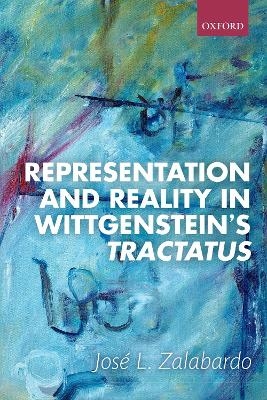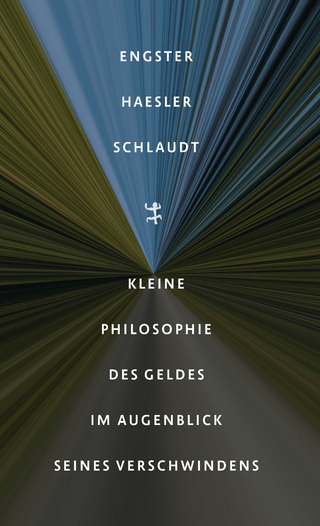
Representation and Reality in Wittgenstein's Tractatus
Oxford University Press (Verlag)
978-0-19-882274-5 (ISBN)
José L. Zalabardo puts forward a new interpretation of central ideas in Wittgenstein's Tractatus Logico-Philosophicus concerning the structure of reality and our representations of it in thought and language. He shows the origins of Wittgenstein's picture theory of propositional representation in Russell's theories of judgment, arguing that the picture theory is Wittgenstein's solution to some of the problems that he found in Russell's position. Zalabardo defends the view that, for Wittgenstein, facts in general, and the facts that play the role of propositions in particular, are not composite items, arising from the combination of their constituents. They are ultimate, irreducible units, and what we think of as their constituents are features that facts have in common with one another. These common features have built into them their possibilities of combination with other features into possible situations. This is the source of the Tractarian account of non-actual possibilities. It is also the source of the idea that it is not possible to produce propositions answering to certain descriptions, including those that would give rise to Russell's paradox. Zalabardo then considers Wittgenstein's view that every proposition is a truth function of elementary propositions. He argues that this view is motivated by Wittgenstein's epistemology of logic, according to which we should be able to see logical relations by inspecting the structures of propositions. Finally, Zalabardo considers the problems that we face if we try to extend the application of the picture theory from elementary propositions to truth functions of these.
José L. Zalabardo is a Professor of Philosophy at University College London. He was Head of the UCL Philosophy Department from 2014 to 2018. He was born in Madrid, and educated at the Universidad Autónoma de Madrid, the University of St. Andrews, and the University of Michigan, where he obtained a PhD in 1994. He was a lecturer at the University of Birmingham from 1994 to 2000, when he joined UCL. He has published numerous articles in academic journals and collective volumes. He is also the author of Introduction to the Theory of Logic (Westview Press, 2000) and Scepticism and Reliable Belief (OUP, 2012), and the editor of Wittgenstein's Early Philosophy (OUP, 2012).
Introduction
1: Russell's theories of judgment
2: Wittgenstein and forms
3: The vanishing subject
4: Propositions and facts
5: The limits of representation
6: Logic and analysis
Conclusion
APPENDIX I: Other readings of the nonsense objection
APPENDIX II: The empty-name reading of the substance passage
| Erscheinungsdatum | 19.02.2019 |
|---|---|
| Verlagsort | Oxford |
| Sprache | englisch |
| Maße | 162 x 234 mm |
| Gewicht | 450 g |
| Themenwelt | Geisteswissenschaften ► Philosophie ► Metaphysik / Ontologie |
| Geisteswissenschaften ► Philosophie ► Philosophie der Neuzeit | |
| ISBN-10 | 0-19-882274-X / 019882274X |
| ISBN-13 | 978-0-19-882274-5 / 9780198822745 |
| Zustand | Neuware |
| Haben Sie eine Frage zum Produkt? |
aus dem Bereich


